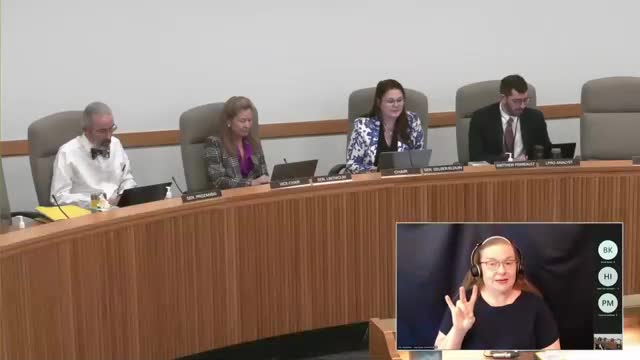Committee hears changes to foster children’s Bill of Rights and sibling-contact rules in SB 875
Get AI-powered insights, summaries, and transcripts
Subscribe
Summary
Senate Bill 875 would modify the Oregon Foster Children's Bill of Rights and the Foster Siblings Bill of Rights, including a presumption in favor of sibling contact and a requirement that a child’s attorney or advocate be present for law-enforcement or abuse-investigation interviews.
The Senate Committee on Human Services held a public hearing on Senate Bill 875, which would update the Oregon Foster Children's Bill of Rights and the Oregon Foster Siblings Bill of Rights and allow a court to limit or prohibit sibling contact only by written court finding to ensure safety.
Sponsors said the measure makes explicit several protections youth and advocates requested: preserving the right of foster children to be present at their own court hearings, clarifying that a child may have an attorney or advocate present for any interview with law enforcement or abuse investigators, and making certain protections — such as transporting personal effects in an appropriate luggage carrier — permanent in the statute.
Matthew, the staff presenter, told the committee the changes come from earlier work with the foster youth coalition and attorneys. Committee members asked how the Bill of Rights is enforced. The chair and witnesses said the document functions both as a statement of statutory expectation for the Department of Human Services and as a practical tool for youth: placards in age-appropriate language are to be posted in placements and given to children when they enter care; those placards also list phone numbers for the child’s caseworker and attorney. The Foster Care Ombudsman can investigate complaints related to the Bill of Rights.
On interviews with law enforcement or abuse investigators, the bill would require that the foster child have an attorney or advocate of the child’s choosing present “regardless of whether the foster child is interviewed as a witness, a victim, or a subject individual,” language committee members discussed. Committee members sought clarity on who would ensure the child is notified and how the right would be enforced; presenters said existing notification practices (the department and the child’s attorney being notified when a child is interviewed) support that requirement, and committee staff noted the change simply codifies that expectation into the Bill of Rights.
Committee members also discussed that the sibling-contact provision preserves a child’s ability to maintain relationships with siblings but does not compel contact from a sibling who does not wish to have it. The public hearing was opened and closed with no committee vote; the committee said it will return the bill for further amendment and testimony.
